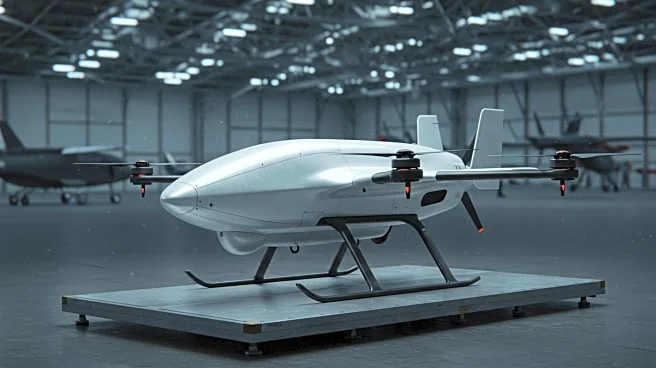What's Happening?
Bridges Air Cargo, based in Malta, has received its first Embraer E-Freighter, specifically the E190F model, marking a significant milestone as the world's first of its kind. The aircraft, initially operated by Avianca El Salvador, is part of Bridges' strategy to expand its fleet and enhance its cargo operations across Europe, the Mediterranean, and Africa. The company plans to introduce a second E190F soon, with ambitions to transform Malta into a key hub for express and cargo operations. Embraer named Bridges as the launch carrier for the E190F during the Paris air show, where Bridges increased its commitment from two to four aircraft.
Why It's Important?
The introduction of the E190F by Bridges Air Cargo represents a strategic move to capitalize on the growing demand for fast delivery services driven by e-commerce. This expansion is poised to enhance Malta's position as a significant player in the air cargo industry, potentially boosting local economic activity and connectivity. The E190F's capabilities, including a payload of 10,700kg, are designed to meet the evolving needs of the express delivery market, offering efficient solutions for regional cargo missions. This development underscores the importance of modernizing fleets to remain competitive in the global logistics sector.
What's Next?
Bridges Air Cargo is expected to continue its fleet expansion with additional E190F aircraft, further solidifying its presence in the express delivery market. The carrier's plans to transform Malta into a central hub for cargo operations may lead to increased investment in infrastructure and logistics capabilities on the island. Stakeholders in the aviation and logistics industries will likely monitor Bridges' progress and its impact on regional trade routes and economic growth.
Beyond the Headlines
The launch of the E190F highlights the broader trend of passenger-to-freighter conversions in the aviation industry, driven by the need to extend the lifespan of older aircraft and adapt to changing market demands. This shift reflects the industry's response to sustainability challenges and the pursuit of more efficient cargo solutions. As e-commerce continues to grow, the demand for innovative logistics solutions will likely drive further advancements in aircraft design and fleet management.










